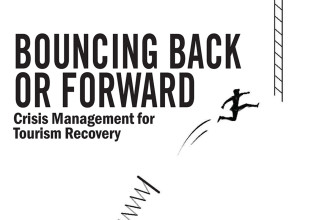
In this article, I am trying to highlight the efforts required, more particularly by Nepali Entrepreneurs, on how to take forward structured entrepreneurial initiatives in the Post-Covid 19 scenario.
Let’s get our priorities right
The most affected section of the economy from this Pandemic is and will be our large labour force, which get paid on a daily, weekly or monthly basis. They are already eating less, they are under-nourished and are absolutely fearful about their and family’s future.
This labour force which comprises about significant 35% of our population must be protected. The first and foremost priority must be to retain their jobs and provide employment to Nepalese labourers who have already returned and will be returning forcefully from India, Middle East, Malaysia and other countries. Because of the slowdown in economies around the globe, people working outside will be laid off and will be forced to return to their homeland.
Entrepreneurs must create avenues, start businesses, be most enterprising in creating jobs and ensure basic minimum cash flow for them to meet their livelihoods. Failing to do so might result in disastrous outcomes, including the worst possible consequence of starvation. As far as possible, let’s not shut our doors to the working class, even if we are not able to create additional jobs which is anyway going to be highly challenging, let’s not lay off people for the maximum possible period of time. If we can keep them on the payroll for four months, their family will be fed in this uncertain and daunting time, after which we can hope for the situation to start getting normalised. This is a time for us to work from a humanitarian perspective. Our balance sheets, cash flows, profits are all secondary.
Expect least from the government
Looking at the government response so far to protect entrepreneurs, let’s not expect anything from them. This is unfortunate, but it is the reality. While several other governments have already commenced relief packages to the extent of covering 80% of the payroll for all businesses, our government might not have even thought about this. I was talking to one of my seniors who own a hotel. He was sharing that his Board’s focus at this point is in downsizing and restructuring his company, which means a majority of the workforce working in the hotel will lose their jobs.
Revenues for the hotel have dried up completely, hence his Board is left with no option but to send people on leave without pay and eventually shut off employment. Has the government assessed the impact of these shut downs? I doubt it.
What is the Finance Minister - being an educated and well-exposed personality, having worked in IMF, Planning Commission and Central Bank in the highest capacities - doing to stimulate our economy when the country is in dire need? In the first place, why is he still double hatting the Ministry of Finance and Ministry of Communication? Why is he still performing the role of the government’s Official Speaker. Dear Prime Minister, please understand, at this point, the role of the Finance Ministry is more than a full time job. At this point, the Finance Minister’s 100% focus must be in stimulating the economy, he should be working with his Finance Ministry colleagues day and night to revive and stimulate the economy. He should be working 24×7 in structuring sector-wise relief packages. This is basic common sense! I will be pleasantly surprised, if something in this line will come forward, but as an entrepreneur, I have no expectations. Therefore, would like to appeal the entrepreneurial ecosystem to focus on production and value creation to keep employment intact.
Sectors to focus on
Agriculture, agriculture and agriculture. During these times, we must focus on producing basic food materials to keep our population fed. Basic food processing plants across all agricultural products must be on a priority list.
We must build our competitiveness in our core-strength areas. Going forward, our financial system must be innovative enough to cater to the right financial products for our country with absolutely innovative practices in micro and municipal financing being accelerated and the role of private sector enhanced. Venture capitalist and Private Equity Funds must be flexible in financing start-ups and depart from their stringent rules of financing businesses. Central Bank, Securities Exchange Board, Insurance Board along with their regulatory roles, must play the role of facilitating Banks, Capital and Insurance Companies.
Resta Jha is the Founder & Executive Chairman of KFA. KFA, is in business of Training, Education and Consulting for last 19 years.





